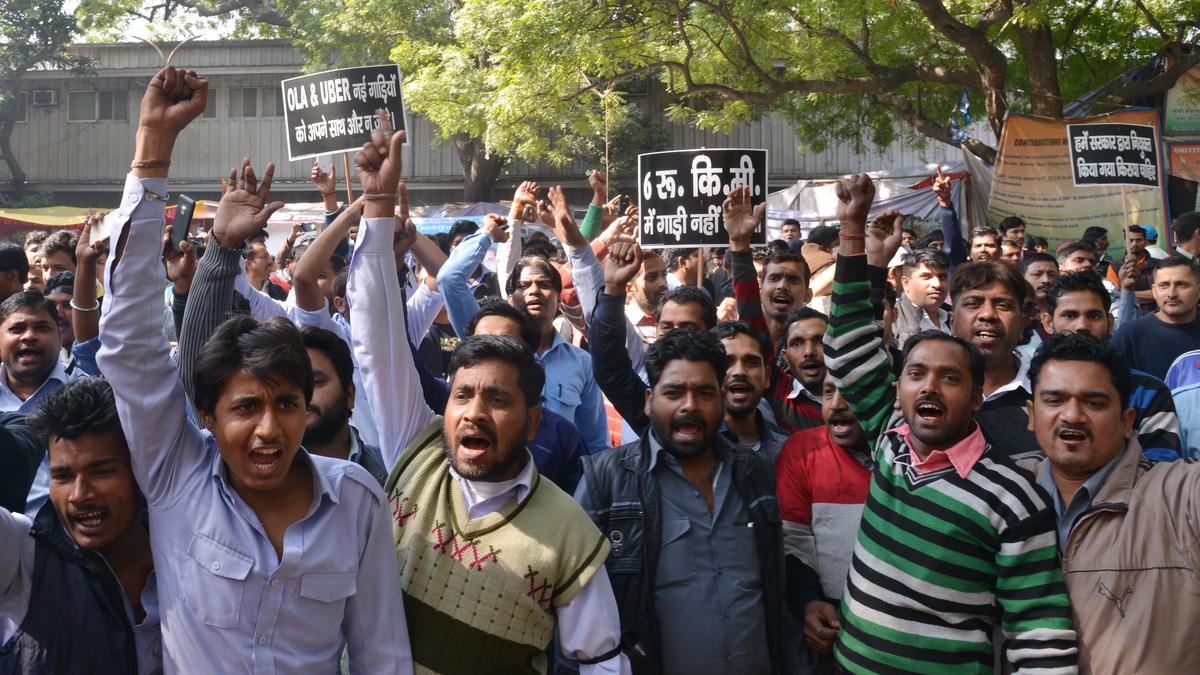
Explained | Rajasthan’s draft Bill for gig workers Premium
The Hindu
The Hindu explains the provisions of the Rajasthan Platform-Based Gig Workers (Registration and Welfare) Bill and if it safeguards the rights of India’s swelling gig workforce.
The story so far: The Rajasthan government recently released the draft Rajasthan Platform Based Gig Workers (Registration and Welfare) Bill, 2023 — the first legislation of its kind in India outlining social security and welfare measures — and invited feedback from stakeholders, including the State’s approximately three lakh gig workers, till July 7.
The demand for a legal framework echoes throughout India’s 77-lakh-strong gig workforce (expected to swell to 2.34 crore by 2030). Gig workers, portrayed by many companies as ‘partners’ partaking in an ‘economic revolution’, often work unregulated hours, inadequate wages, do not have social security, and face discrimination and harassment at the hands of both companies and customers.
Shaik Salauddin, the National General Secretary of the Indian Federation of App-Based Transport Workers (IFAT), says the present Bill is both a “milestone” and “mirror,” reflecting the status of gig workers in India and the worldoperating as they do in a system shaped by algorithms and facing limited economic opportunities. Experts and unions, however, say the Bill needs to be tightened in language and scope, so that it lifts them to a place where no company or algorithm decides who gets work and how they are compensated.
The Bill applies to “aggregators,” defined as digital intermediaries connecting buyers and sellers, and “primary employers,” an individual or organisations engaging platform-based workers for providing one or more of the following services:
The Bill proposes a Welfare Board — comprising State officials, five representatives each from gig workers and aggregators, and two others (“one from Civil Society and another who evince interest in any other field”). At least one-third of the nominated members should be women. The Board will “set up a welfare fund, register platform-based gig workers, aggregators and primary employers... facilitate guarantee of social security to platform-based gig workers and to provide for matters connected therewith or incidental thereto.” They are the vessel to “govern the norms of implementation and monitoring of the Act,” and will present an annual report to the Rajasthan Government, which will be laid before the State Legislature.
The Board will maintain a database made available on a web portal. Aggregators can register themselves and provide workers’ details, duration of engagement with the platform and if they are employed with other aggregators. Each gig worker will receive a unique ID, and this registration “shall be valid in perpetuity.”
In their recommendations to the government, which The Hindu has reviewed, labour unions have objected to vague terminologies within the Bill that may offer escape hatches to companies. A ‘gig worker’ is currently defined as someone who “earns from such activities outside of the traditional employer-employee relationship and who works on a contract...” They recommend the definition specify someone partaking in a work arrangement“mediated by any technology platform (app-based and web-based) as an intermediary.”This would expand the scope to include workers employed through subcontractors and third-party service providers. Unions also argue for removing the concept of a “primary employer” from the Bill to curb exploitation by unlicensed third-party service providers.













